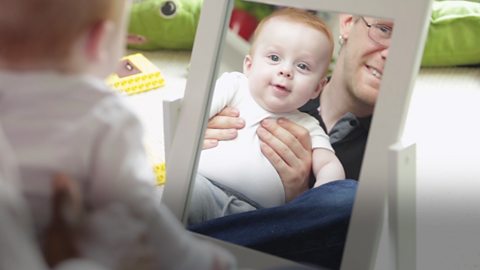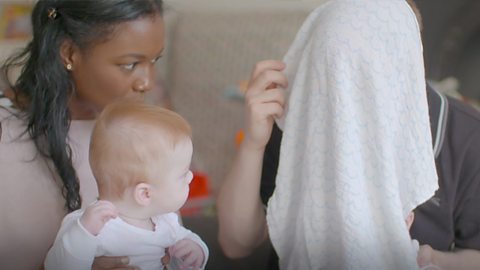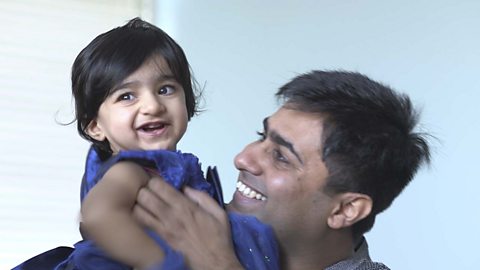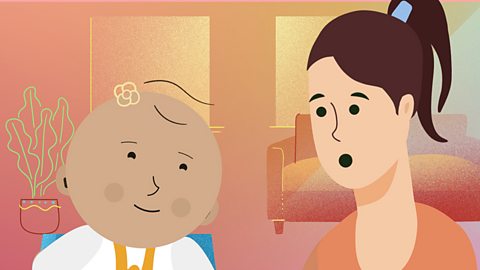Babies react to mirrors in all sorts of extraordinary and often funny ways.
In this short video below, child development expert Dr Michelle Peter meets parents to explain the science behind these reactions.
She offers her tips on how using mirrors can help your baby’s development.
Michelle:
Where's Yarra gone? Oh, there she is!
Shall we see? Shall we see what happens?
Some babies might show that they're a bit fearful but he seems to be really excited, he wants to get close to it.
Who's that?
So, babies love faces, right?
They're able to recognise the faces of their parents, but they can't recognise their own reflection.
So right now Aaryan doesn't know that he's looking at himself.
So, to him, this is potentially another baby, another friend.
She copied your outfit!
Looking into mirrors isn't only entertaining for you and your baby, but it's a great way for you to help your baby to practise their social skills.
What we want to see is whether they are curious, whether they're going to try and communicate with what they're seeing there.
And all the time that you're doing these activities, it's a great opportunity for you to be talking about what you're doing.
The more you can be talking to your baby, talking about what they're interested in, the better it is for their development.
Hey, Aaryan!
Why do babies like mirrors?
Babies love faces, especially the faces of their parents and caregivers. Mirrors are a great opportunity to explore faces close up with your baby and help them develop their self-awareness.
Find out more about why face-to-face conversation is so important for their language development.
How can playing with mirrors help baby development?
There are loads of ways that mirrors help with a baby's development.
By gazing at themselves and you in a mirror, your child can learn to identify familiar faces, track movements and even develop their tiny muscles as they reach and roll toward their reflection during tummy time.
During tummy time, a mirror can motivate your baby to lift their head, keep it up, and look around. For babies who usually cry during this time, propping a safe mirror in front of them may distract them and hold their interest for longer.
Talking your baby through any mirror activities you're doing together can also help their early language skills. Why not pull different faces and talk about all of the emotions you're showing? Or try a game of peekaboo in the mirror?
Ideas for mirror play
1. Ask your baby to point to parts of their face. You can point to their nose to, or your own, saying the words as you go. This exercise helps babies learn the names of body parts that they might not usually see.
2. Work on imitation skills by making funny faces in the mirror and seeing if they can copy you.
3. Try performing a "puppet show" in front of the mirror. This might help them work out the relationship between themselves and the people they can see in the mirror.
When do babies learn to recognise themselves in the mirror?
A lot of babies won't develop a proper sense of self-awareness until around 2 years old. It is at this point that they come to understand that the person in the mirror is them and not another child to play with.
Want to find out more about the science behind this? Check out this video on when babies learn to recognise themselves in the mirror.

Image caption, Mirrors are great tools for developing your baby's social skills.
1 of 5






